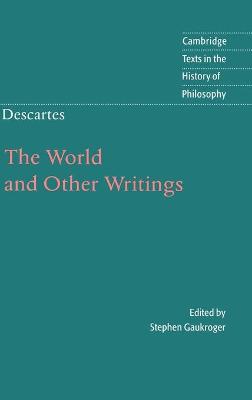Cambridge Texts in the History of Philosophy
3 total works
Descartes' The World offers the most comprehensive vision of the nature of the world since Aristotle, and is crucial for an understanding of his later writings, in particular the Meditations and Principles of Philosophy. Above all, it provides an insight into how Descartes conceived of natural philosophy before he started to reformulate his doctrines in terms of a sceptically driven epistemology. Of its two parts, the Treatise on Light introduced the first comprehensive, quantitative version of a mechanistic natural philosophy, supplying a theory of matter, a physical optics, and a cosmology. The Treatise on Man provided the first comprehensive mechanist physiology. This volume also includes translations of material important for an understanding of the work: related sections from the Dioptrics and the Meteors, and an English translation of the complete text of The Description of the Human Body.
The Meditations, one of the key texts of Western philosophy, is the most widely studied of all Descartes' writings. This authoritative translation by John Cottingham, taken from the much acclaimed three-volume Cambridge edition of the Philosophical Writings of Descartes, is based upon the best available texts and presents Descartes' central metaphysical writings in clear, readable modern English. As well as the complete text of the Meditations, the reader will find a thematic abridgement of the Objections and Replies (which were originally published with the Meditations) containing Descartes' replies to his critics. These extracts, specially selected for the present volume, indicate the main philosophical difficulties which occurred to Descartes' contemporaries and show how Descartes developed and clarified his arguments in response. This edition contains a new comprehensive introduction to Descartes' philosophy by John Cottingham and the classic introductory essay on the Meditations by Bernard Williams.

